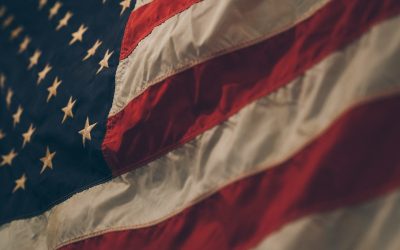Cheney served in the House of Representatives for six years, was a specialist in national security, and held various high-ranking positions within the Republican Party. She became vice chair of the select (bipartisan) committee that investigated the attack on the U.S. Capital on Jan. 6, 2021. This book, which includes relevant background, is her report on the results of that investigation. Specifically, it is an expose of numerous attempts made by Trump and his followers to overturn his election loss to Biden. At a deeper level, it is a testament to her moral character.
Following the election most electors, who were not members of the legislature, agreed that Trump had lost the election and Biden had won. Most of Trump’s followers initially accepted the outcome but that soon changed. Trump claimed the election was stolen and his followers in Congress quickly agreed.
Radio personality Mark Levin, who had previously opposed Trump, changed his mind on November 20, 2020. He argued that the Republican state legislators could simply ignore the electors’ vote and change the outcome of their own accord. This would allow them to ignore the Constitution and their own previously established procedures such as ordering a recount or filing a lawsuit.
Trump, Rep. Jim Jordan, Rudy Giuliani, and many others claimed massive voter fraud. House Speaker Kevin McCarthy at first said Trump had lost but later changed his mind. Conspiracy theories abounded. For example, there was a false claim that Arizona altered 400,000 mail-in ballots. Trump and his supporters filed over 61 lawsuits. They lost 60 of them. In other words, there was no evidence of crooked voting.
Texas Congressman Louie Gohmert said that the only hope for Trump might be street violence but claimed later that he did not mean it. But others presumably got the original message,
Cheney was a lawyer and had in-depth knowledge of the Constitution. She sent a detailed memo to her Republication colleagues pointing out that the Constitution did not allow legislators to reject the result of the electoral slates (without using established procedures as noted above).
Kevin McCarthy and others pressured newly elected members of Congress to go along with Trump’s view even though as I noted, members of the legislature were not, in fact, eligible to be electors.
January 6 was to be for Congress to count the electoral votes and formally declare a winner. Instead, there was a violent insurrection. The Capital was invaded by force. There was a Confederate flag flying in the Capital. Some members of Congress were accosted and had to run and hide for their lives, including Rep. Cheney, over and above major property damage, many police officers were seriously wounded. One died. There was pressure on Vice President Pence to side with Trump but to his credit he refused.
Trump was prevented from going to the Capital by the Secret Service. But he knew what was happening from watching TV and allowed it to go on for three hours. He finally called a halt, under pressure from his advisors, but praised the rioters and said the attack was justified. Kevin McCarthy said he would condemn the rioters but changed his mind, fearing that Trump would object. Finally, Congress voted to accept the results of the election and declared Biden the winner.
The House of Representatives voted to impeach Trump on Jan. 13. Cheney strongly supported this. Ticker Carlson claimed, without evidence, that federal agents had organized the insurrection. But Fox News was encouraged to do a factual program to rebut the conspiracy theories. After agreeing, Fox canceled the project. The Senate did not support impeachment. Some members were afraid of crossing Trump because they and their families would be in physical danger though Cheney suggested this could be a rationalization. (To date 700 people who were involved in the attack have been tried and convicted and more trials are to come .) McCarthy went to Mar-a-Lago to grovel before Trump. He needed Trump’s financial support but told Cheney he went there because Trump was “not eating well.”
At the end of the next Republican House Press Conference Cheney was asked her opinion of Trump. She replied, “I don’t believe he should be playing a role in the future of the party or the country.” She said that the Republican Party was becoming “The anti-Constitution Party.” This greatly upset Kevin McCarthy who desperately wanted Trump’s approval and support.
Since Cheney would not conform to her party’s position or apologize for her impeachment vote, there was a movement to terminate her position as Leader of the Freedom Caucus. At the next Republican Retreat, she was told to tone down or recant her objections to what the Republicans had done. The discussion went on for hours, but she firmly refused to withdraw or apologize for her views. “To remain in the House Republican leadership, I would have to abandon the truth and embrace Trump’s ongoing efforts to unravel our democracy. That was a price I was not willing to pay.”
Rather than resigning, she decided to speak at length at the following House Republican Conference. She gave a long speech about the law, what America meant to her, and what it stood for. The next morning, she was removed from her position—ironically to a standing ovation, after she left the room, as though the people who betrayed America saw greatness even as they would not live up to it.
But this was not the end. Cheney, with the help of Democratic leader Nancy Pelosi, took an active part in putting together a Select Bipartisan Committee to discuss the Jan. 6 Attack. McCarthy tried without success to sabotage the committee by nominating untrustworthy (pro-Trump members like Jim Jordan). Some people refused to testify.
Nevertheless, the select committee was formed and went to work. They conducted scores of interviews and accumulated reams of information related to the attack. Most ominous was the discovery that there had been many threats of violence against Cheney and others including election officials in various states. Trump also presented legal objections which were vacuous Trump asserted that Mike Pence could overturn the election. As noted, Pence said he could not and refused to attempt it. Trump was infuriated. No state legislature voted to overturn the election.
The hearings revealed endless lies by Trump and his followers and the complete vacuity of the claims that the election was stolen. He even compiled slates of fake electors. Most amazing was Trump’s arbitrary appointment of Justice Department lawyer Jeffery Clarke, whom Trump believed would side with him, as acting attorney general, even though he was unqualified for the job. When key Department of Justice lawyers strongly objected, Trump withdrew his appointment.
One of the most valuable witnesses was Cassidy Hutchinson, a young White House aide who reported events that went on in the White House which revealed Trump’s full awareness and support of the rioting. The White House hired a lawyer for Hutchinson who told her what she was supposed to say when questioned. She refused and got her lawyer. Among other facts, she noted that Trump knew in advance that there would be violence in the Capital. The original interviews with Hutchinson had to be done in secret due to the atmosphere of threat that surrounded the committee hearings. Eventually, she testified at the public hearings based on her first-hand knowledge. This pressured other top Trump advisors to testify and revealed further insights into Trump’s lies and deceptions. Election workers in Arizona and Georgia were personally vilified by Trump and his followers and were harassed and threatened even in their own homes.
A complete, detailed report of the hearings was eventually completed and presumably made available to the public.
Cheney had to return to Wyoming to run for re-election which she had won handily previously. She first gave a speech at the Reagan Library in CA. in which she said: ”Republicans cannot be both loyal to Donald Trump and loyal to the Constitution. It is up to us in our time to choose and choose wisely between the hard but necessary task of preserving peace and freedom, and the temptation to ignore out of duty and blindly hope for the best while the enemies of freedom grow stronger day by day.”
She then proceeded to Wyoming and lost her re-election to Congress by a huge margin. In her election night speech. She said, “No House seat—no office in the land—is more important than the principles that we are all sworn to protect.”
***
I would view Cheney as the best of the traditional Conservatives who have served most recently in government. She stood for absolute integrity. She acted to protect the Constitution even at the expense of her career in government. She loves freedom as she understands it and America and would not compromise her views.
This said we cannot rejoice too much. She believes in God and gives him partial credit for the success of America. She believes in faith and the power of prayer. She believes in duty but does not endorse self-interest. She endorses “freedom” but does not mention individual rights as such. Nor does she mention the Constitution as a product of reason or the Enlightenment. In sum, she is wanting philosophically yet is among the best we had in public life— but she is now out of Congress.
Her book could be of value in reducing Trump’s chances of winning, although Biden is no prize. Sadly, Cheney, though intelligent and courageous, does not offer a proper philosophical base for America’s future survival and prosperity.




